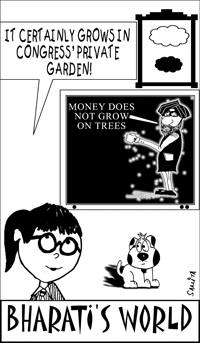Following a spate of tragedies suffered by school children in Tamil Nadu which drew attention to public and official apathy towards child safety rules and regulations, a new scourge of sexual abuse of children is spreading through the state’s 55,567 government and aided and 10,000 private schools, further tarnishing the image of this southern state’s much hyped school system.
Stung by media headlines highlighting the growing incidence of sexual abuse and harassment of students by preda-tory teachers, on May 17 the state government’s school education depart-ment issued a government order (GO), warning that teachers against whom a prima facie case of sexual abuse is made will be dismissed or compulsorily retired, and their teacher training certificates revoked. The GO also directed school managements to sensitise students to sexual molestation and promised to launch mobile counseling centres to educate teachers and students.
The state government’s stern warning to the teachers’ community comes in the wake of a statement made by Union minister of state for human resource development E. Ahamad, that the largest number of child sexual abuse complaints (115) reported to the National Comm-ission for Protection of Child Rights (NCPCR) in 2010 were from Tamil Nadu. NCPCR has also voiced its displeasure about the long delay of the state department of social welfare to appoint a chairperson and six members to set up the State Commission for Protection of Child Rights (SCPCR), despite an order issued to this effect five months ago.
Almost conterminously, the much debated Protection of Children Against Sexual Offences Bill 2011 was passed in the Raja Sabha on May 10. The Bill provides for special courts to speedily try and impose stringent punishment including life imprisonment, for sexual assaults on minors below 16 years of age.
 While welcoming the state govern-ment’s GO, child rights activists bridle at the suggestion that sexual abuse of children is more prevalent in Tamil Nadu than in other states. “Child sexual abuse is one of the most under-reported crimes worldwide, and the larger number of complaints in Tamil Nadu imply greater awareness and alertness in society as also confidence in the justice system. The stern action the state government proposes to take against sexual predators in schools shows that society expects greater responsibility from professionals in jobs that give them close proximity to children,” says Vidya Reddy, founder-director of the Tulir Centre for Prevention and Healing of Child Sexual Abuse, Chennai.
While welcoming the state govern-ment’s GO, child rights activists bridle at the suggestion that sexual abuse of children is more prevalent in Tamil Nadu than in other states. “Child sexual abuse is one of the most under-reported crimes worldwide, and the larger number of complaints in Tamil Nadu imply greater awareness and alertness in society as also confidence in the justice system. The stern action the state government proposes to take against sexual predators in schools shows that society expects greater responsibility from professionals in jobs that give them close proximity to children,” says Vidya Reddy, founder-director of the Tulir Centre for Prevention and Healing of Child Sexual Abuse, Chennai.
Nevertheless several instances of child sexual abuse by some of the state’s 500,000 school teachers graphically detailed in the media, have shocked the conscience of this socially conservative state. On September 11, a class VII boy of a government-aided school in Tirunelveli was sexually assaulted by his private tutor at the latter’s home where he had gone for tuition. In July, a teacher of the private Gnanam Matriculation School in Chennai was arrested for sexually assaulting a seven-year-old boy in his class. And a year ago, a four-year-old kindergarten school girl in Villipurum district was sexually abused by her (woman) teacher and school principal. In all these cases, the response of the state government’s education and other departments, as also of the courts, has been lethargic and abusive teachers have been let off with mild ritual punishment.
Consequently, child rights activists are sceptical about the state government’s stern warning to the teachers community. “Given the conspiracy of silence around sexual abuse, and with teachers’ unions in government schools invariably siding with abusers, it is doubtful if instant dismissal of errant teachers and revocation of their degrees will be practically possible. Instead, government authorities should concentrate on prevention of abuse by exercising caution in appointing teachers without a proper check of their moral character and conduct. Moreover, incorporation of child rights in the teacher training curriculum will also help in creating awareness of this taboo subject. Simultaneously, it’s high time school managements start introducing sex education programmes and teach children to differentiate between ‘good and bad touch’, an issue which has been debated for decades,” says K. Shanmugavelayutham, reader in social work at Loyola College and activist of the Tamil Nadu Forum for Creche and Childcare Services.
Clearly, unless parents, education officials, and civil society members band together to heighten awareness about sexual abuse, and constantly monitor and prosecute rogue teachers, this growing menace will not disappear from Tamil Nadu’s schools.
Hemalatha Raghupathi (Chennai)